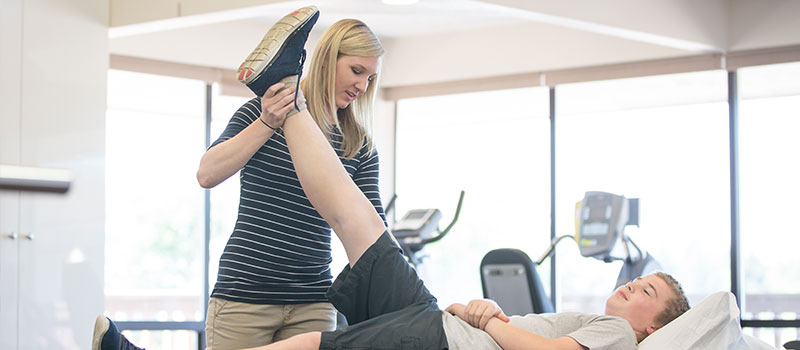If you have ever had a contractual or broken a bone, you have likely visited a Newcastle Physiotherapists to recover the physical form. Physiotherapy is a discipline of Health Sciences that offers treatment to the various diseases of the human body.
Therefore, it does not use pharmacological or surgical means, although it can serve as a compliment. To practice as a Newcastle Physiotherapist, it is necessary to take the Degree in Physiotherapy.
Also, the Newcastle Physiotherapist can complement his training with a master’s degree. Today, there are many possible specializations. Some Newcastle Physiotherapists specialize in a specific part of the body, such as the jaw or the pelvic floor.
As you know, it is a sector with very high demand. The offer of the Degree in Physiotherapy has increased significantly for this reason. But why does this profession attract students so much?
How is the day to day with patients? What specialties are best known? In this post, Newcastle Physiotherapists answer questions about an essential figure to preserve our health. Have you considered being a Newcastle Physiotherapist? Then start to inform you and do not miss a detail.
What are the functions of a Newcastle Physiotherapists?
Newcastle Physiotherapists must distinguish between three functions:
- Assistance It is in this area where the physiotherapist-patient health relationship is established. The purpose is to contribute to the physical and mental well-being of the person affected by a medical condition.
- Teacher and researcher. Students need to be trained by professionals at the university. Also, some physiotherapists are dedicated to research to discover new methods or therapies.
- Of management. Often, the physical therapist intervenes in the administrative management of the center where he works. However, this function can be delegated and depends on the degree of responsibility of the professional in the center.
What specialties exist?
As Newcastle Physiotherapist said at the beginning, physiotherapy is a profession full of possibilities. The human body works like a very complex machine. And each piece may require a different treatment. Thus, it is logical that there are various specialties. These are some of the most frequent:
- Neurology. Physical therapy increases the quality of life of people with neurological disorders. Some can improve a lot physically thanks to regular treatment. A distinction must be made between children’s neurological physiotherapy and neurological physiotherapy for adults.
- Pediatrics. Some children may need the help of a professional, either due to developmental disorders or due to specific ailments. Musculature, neurological, respiratory, hematological, etc., can be treated.
- Geriatrics. Ageing usually causes an increase in health problems. Physiotherapy is a means to combat symptoms and contribute to body well-being.
- Gynecology. Physiotherapy contributes to the excellent health of the pelvic floor. You can treat prepare, postpartum, urinary incontinence or sexual dysfunctions.
- Sport. People who do sports professionally or as a regular hobby need a trusted physiotherapist. Not only to treat injuries but to prevent them.
- Mental health and psychiatry. Physiotherapy treatments reduce feelings of anxiety and help to find body-mind balance.
- Traumatology Bone fractures, dislocations, sprains, inflammations, etc. are treated in this area.
- Oncology. Cancer patients can also benefit from physiotherapy. Stimulation contributes to a greater sense of well-being.

What job opportunities does physiotherapy have?
But in what places can it be exercised? In summary, these are some of the most common options for finding employment:
- Physiotherapy centers
- Health centers: hospitals, clinics, etc.
- Gyms
- Sports entities
- Nursing homes and people with disabilities.
- University and scientific research centers.
And you? What specialty attracts you the most? If you are not sure, check Newcastle Physiotherapist offer and start building your future.








